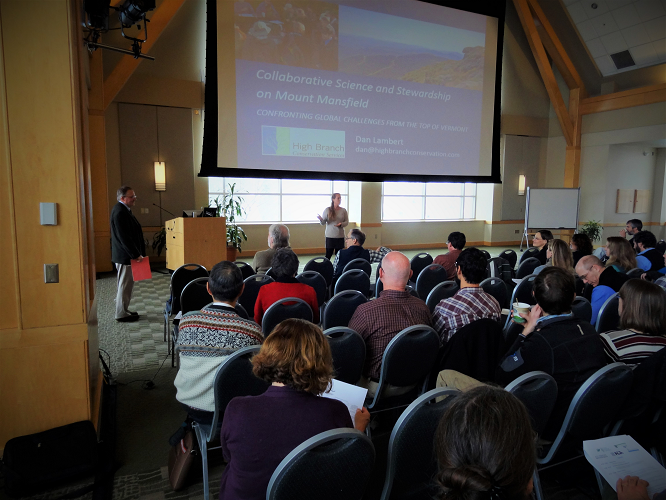FEMC as a Cooperative
The FEMC is a collaboration among universities, non-profits, and state governments from seven northeastern states. As part of the Cooperative, these organizations share and synthesize forest ecosystem research and monitoring data, facilitate networking and partnership, and provide tools to understand and manage forested ecosystems across the region.
How the Cooperative Works
Partners from dozens of organizations work together to share information and collaborate on key challenges facing the northeastern states of Connecticut, Maine, Massachusetts, New Hampshire, New York, Rhode Island, and Vermont.
The FEMC Steering Committee and State Partnership Committees oversee a regional work plan to define tasks that address key issues; FEMC staff complete these tasks.
Regional Projects: Lead synthesis and data-gathering efforts around pressing regional forest health issues identified and selected through consultation with FEMC State Partnership Committees and the FEMC Steering Committee.
The FEMC Committees identified four Regional Projects:
- Forest Disturbance: Monitoring and communicating changes in forest disturbance regimes.
- Climate Indicators: Monitoring northeastern forest indicators for signs of climate-driven change.
- Relevance and Currency: Maintaining and enhancing existing FEMC regional resources such as the Northeastern Forest Health Atlas, the Northeastern Forest Regeneration Data Network and others.
- Forest Health Monitoring: Expand and assess a network of permanent forest health monitoring plots (link coming soon).
State Sprint Projects: Delivery of state-specific projects identified by state partnership committees to address needs that cannot currently be filled by state agencies and partnering organizations. The FEMC provides staff support to each state for these projects. Explore FEMC's full list of current and past state and regional projects.
Core activities: Maintenance of FEMC core activities such as data management, archiving and accessibility, hosting an annual conference, and work building collaborative networks around key experts and stakeholders across the region. Strategic planning and implementation as well as partner engagement and support are also a part of core program support.
Funding for the FEMC is provided by the USDA Forest Service, the University of Vermont and participating state natural resources agencies to support core FEMC activities. Additional financial and in-kind contributions from partners are a valuable source of support for specific programs. The strength of the FEMC program is a result of the contributions provided by the Cooperative members

